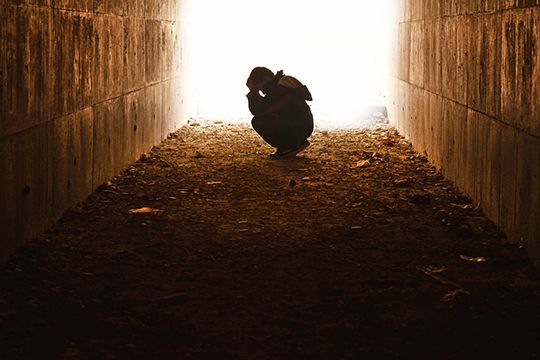
How the writers of the Psalms give an example of asking God honest questions.
As a believer in God, is it ok to question Him, maybe even challenge Him about what He is doing in our lives and in the lives of others?
Sometimes we look around at the world and wonder, “how can God be letting this happen?” Or we look at our own lives and wonder, “why would God put me through this?”
I know I’ve asked these questions many-a-times throughout my life and then quickly stopped myself. I’ve been faithfully taught, and I believe that God is perfectly in control and He has my best interests at heart. So am I allowed to question Him? Or should I simply accept what is going on around me and in my life?
The Model of the Psalms
This year at my church, we’ve been reading the Psalms. We read one Psalm a day for our quiet time and then our minster preaches on one of the Psalms from that week at our Sunday church service. And I’ve been surprised how many times David and the other Psalm writers question God.They ask Him questions like:
- “Why, O LORD, do you stand far away? Why do you hide yourself in times of trouble?” (10:1)
- “Why have you forgotten me?” (42:9b)
- “Why do you forget our affliction and oppression?” (44:24b)
- “How long, O God, is the foe to scoff? Is the enemy to revile your name forever?” (74:10)
Are the Psalmists disrespectful?
At first, all this questioning made me a bit uncomfortable. The Psalmists are so open in their questioning of God, do they know something about relating to God that I don’t? However, as I read, I began to notice a pattern. Even as they question and challenge God they remain convinced of God’s goodness and His sovereignty over all that is happening. They often show this by finishing off the Psalm with an affirmation of God’s character.Here's an example from Psalm 10.
Firstly, the Psalmist asks: “Why, O LORD, do you stand far away? Why do you hide yourself in times of trouble?”
But in verse 16, he concludes by saying: “The LORD is king forever and ever”.
You see, while the Psalmist asks the question, He realises that God is in complete control and trusts Him no matter what.
Questions and answers
Despite all the questions that arise, the Psalmists continue to affirm God's characteristics. Some other examples are when they talk about:- God's steadfast love (5:7, 13:5),
- The fact that God hears when they call out to Him (4:3, 6:9),
- How God will redeem His people (75:10, 91:3-6) and
- How God will punish the wicked (68:1-2) because He is just in His judgement (10:18, also seen in 9:4,140:12)
- How despite their circumstances or the evil that they see around them, they will praise God, they will tell people of the wondrous deed of the Lord (22:22, 78:4)
So is it ok to question God?
Yes! But in the right way. We're not to accuse God of doing wrong, or to act like we know better than him. But we're to honestly approach Him with our questions and the things that are on our heart as we seek to live for Him.And remember, as we’ve seen from the Psalms, questioning God and trusting Him go hand-in-hand. In fact, He’s the right one to ask, because He’s in control. And when you do question God, make sure that you take a leaf out of the Psalmist’s book, remember who God is, be reverent, honour Him and affirm the truths you know of Him.









